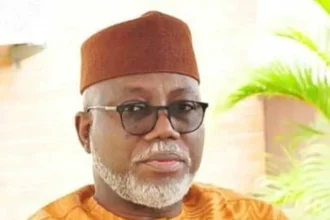
President Bola Tinubu, on Tuesday evening, received billionaire industrialist, Alhaji Aliko Dangote, at the State House in Abuja for a private meeting.
Though brief and undisclosed, the meeting highlights the Federal Government’s continued support for private-sector-led growth in the oil and gas industry.
The engagement followed President Tinubu’s June visit to the 650,000-barrel-per-day Dangote Refinery and Petrochemicals complex in Lagos.
Earlier on Tuesday, Tinubu welcomed delegates to the West African Refined Fuel Conference via a post on his official X handle.
He stressed Africa’s urgent need to take a stronger position within the global energy markets and reduce dependency on external pricing.
“Africa can no longer be a price taker. We must set transparent benchmarks that reflect our true value and protect our economies,” Tinubu posted.
He also revealed that Nigeria is collaborating with regional partners to create a unified African energy market.
“From refining to regulation and trade flows, we’re building a market that rewards production and secures energy for our people,” the President said.
Also Read:
Africa becoming destination for cheap, often toxic petroleum products, losing $90bn annually, Dangote laments
During the conference, Dangote addressed key structural problems affecting refinery developments across the continent.
In a presentation titled ‘Building an African Refinery Hub: Prospects and Challenges’, he outlined persistent difficulties.
“Besides poor infrastructure, our biggest problem lies in rent-seeking throughout the petroleum value chain across Africa,” Dangote explained.
He noted the sector’s long-standing vulnerability to corruption and exploitation by vested interests.
“When a refinery disrupts this setup, it challenges powerful forces determined to resist and maintain the status quo,” he stated.















